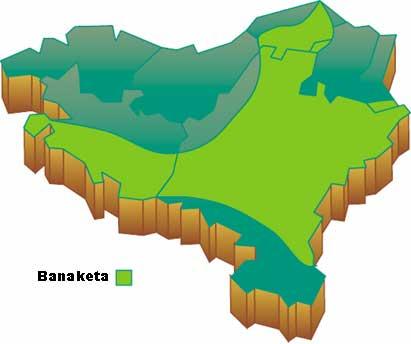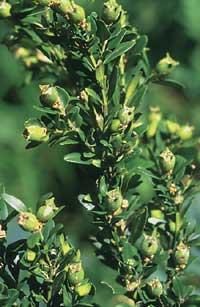BOJ

All species of this family are shrubs or small trees. They usually have simple leaves and very small flowers. It includes 5 genera and 60 species, divided into temperate, subtropical and tropical regions.
On the other hand, the small shrubs or trees of the genus Buxus have entire, opposite and curved leaves and are monoecious. Within this genus, in the Basque Country there is a single species, the boj object of study.

It is a species considered as a small tree or tree, which sometimes reaches 8 meters of height. Numerous rigid and deep fractured branches. The leaves, relatively small and short-range, are dark green and discreet above and matt and whitish below. The floral glomeruli are abundant, appearing the males clearly eserías. It blooms between March and May, but the flowers begin to develop in September-October. The fruit is a spherical capsule.
As for its distribution, it is common in the Mediterranean basin. It grows mainly in different types of forests, in bushes, summits and rocky slopes, in which it tends to form large plantations. In the Pyrenees, for example, it is very abundant.
The boj has been very appreciated for the construction of landscaped fences and very used to turn its wood and carve. Despite being a poisonous plant, we have known that it has been used as a medicinal herb. They say it is diuretic and is good to cure liver diseases and malaria. It is purgative and, above all, ensures that the obstruction of your skin is stimulating.
TECHNICAL DATA SHEET Boj Boj Family: Obstructive Species: Buxus sempervirensDistribution: Quite normal in the Mediterranean basin Habitat: different scrub and types of forests, peaks and rocky slopes. |





